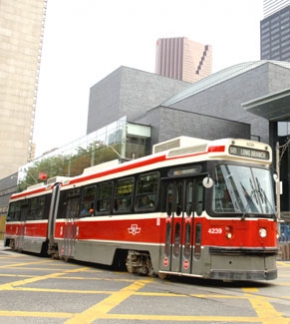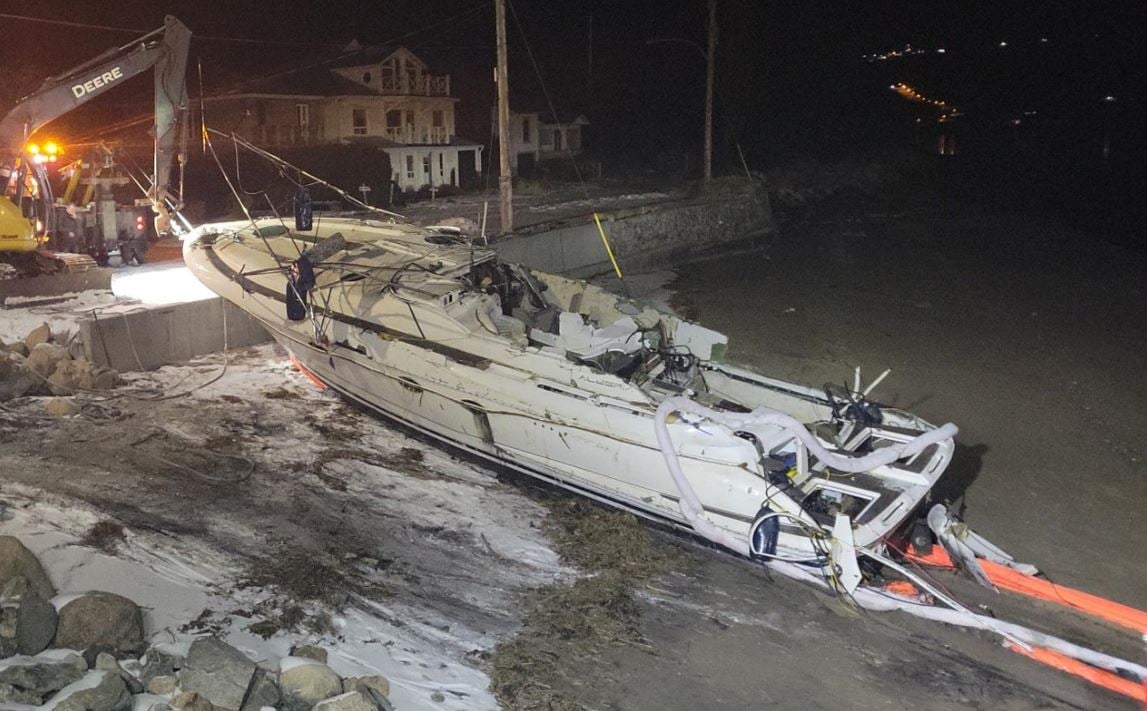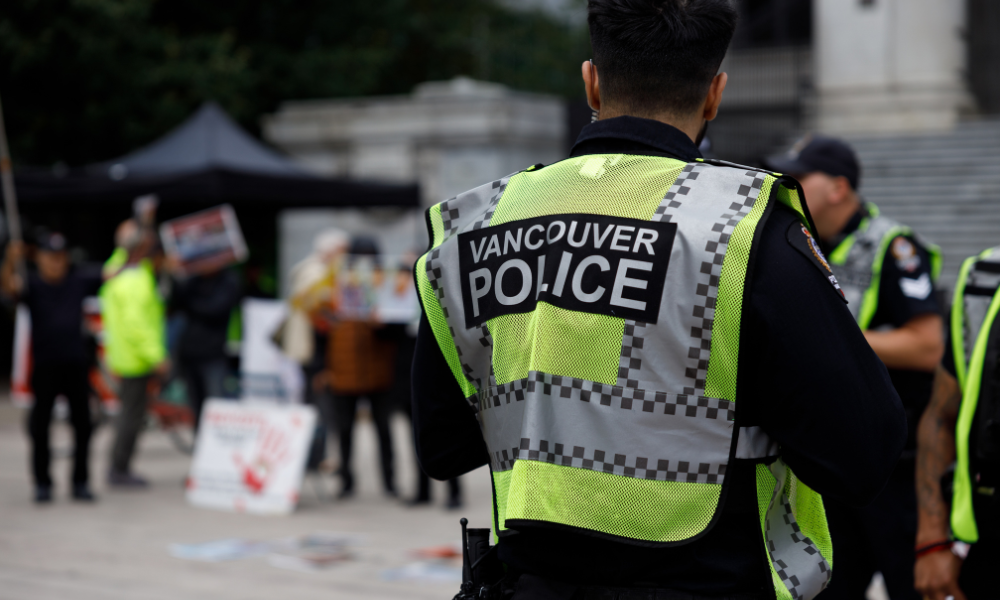
(UPDATE) The Toronto Transit Commission has approved a staff recommendation calling for random alcohol and drug testing for certain positions within the transit organization, in a meeting on Wednesday, October 19.
Previously, employees could be tested when they were hired, if they switch jobs within the TTC, if an incident took place, or with cause.
The random tests will be done on operators, some maintenance staff and some managers.
TTC GM Gary Webster says the plan may take a year or longer to be put in place and the cost of the plan won't be determined until it's decided how many employees will be tested and how often.
TTC chair Karen Stintz says testing 25 per cent of employees at about $60 a swab would cost $300,000-$400,000 a year.
The TTC's existing fitness for duty policy, which was implemented in October 2010, allows for drug and alcohol testing of those in safety-sensitive positions, specified management positions and designated executive positions, under the following circumstances: pre-employment/certification, reasonable cause, post-incident, post-violation and post-treatment.
The staff report asked the transit commission to amend the fitness for duty policy to include random testing for the same group of employees.
In a report to the transit commission, TTC staff reiterated its belief that introducing random drug and alcohol testing is needed to ensure a safe workplace and safe service to the general public. It added that the existing policy that allows for drug and alcohol testing in certain circumstances "has not fully addressed the alcohol and drug problem at the TTC."
"While privacy concerns may exist with respect to random testing, it is the position of TTC staff that the obligation to provide a safe workplace to employees and a safe service to the public outweighs such concerns. Therefore, a policy which requires alcohol and drug testing, including random testing for designated positions, should be in place," the report said.
In the U.S., random alcohol and drug testing in the transportation sector is the law. Every public transit agency, like the TTC, must have random testing in its workplace. In Canada, for example, both Greyhound and Coach Canada bus operators are subject to random alcohol and drug testing. Windsor, Ontario is the only Canadian public transit operator with random testing in place, and only for those employees who operate routes that cross into the U.S.
According to the U.S. Federal Transit Administration’s latest statistical report, between 1995 and 2008, positive random alcohol tests declined from .25% to .15%. Similarly, positive random drug tests declined from 1.76% to .82%.
"In the United States, where random alcohol and drug [testing] is mandatory in certain industries, data shows that random testing acts as a deterrent to alcohol and drug use in the workplace." the TTC staff report said.
The report cited several incidents at the TTC that were found to be related to drug and alcohol use by employees. The Lytton Subway work car fatality in 2007, was an example, where the coroner's report noted that the operator of the worker had "measurable levels of Tetrahydrocannabinol (THC) in his system, and that the level indicated that the drug was probably used during his shift." That incident caused the death of the workcar operator, and seriously injured two crew members. The incident was also a key factor in prompting a review of the TTC's existing drug and alcohol policy then, the report said.
According to a statement from the TTC, random alcohol and drug testing involves a breathalyzer test for alcohol and an oral fluid test for drugs, as is the case for post-incident and reasonable cause testing today. Random alcohol and drug testing is only used to detect impairment at the time of the test; it does not indicate if an individual is a recreational drug user, for example. Furthermore, test results for drugs only indicates a pass-fail based on the established threshold – the laboratory does not provide the TTC with the levels of a substance detected, if any.
Previously, employees could be tested when they were hired, if they switch jobs within the TTC, if an incident took place, or with cause.
The random tests will be done on operators, some maintenance staff and some managers.
TTC GM Gary Webster says the plan may take a year or longer to be put in place and the cost of the plan won't be determined until it's decided how many employees will be tested and how often.
TTC chair Karen Stintz says testing 25 per cent of employees at about $60 a swab would cost $300,000-$400,000 a year.
The TTC's existing fitness for duty policy, which was implemented in October 2010, allows for drug and alcohol testing of those in safety-sensitive positions, specified management positions and designated executive positions, under the following circumstances: pre-employment/certification, reasonable cause, post-incident, post-violation and post-treatment.
The staff report asked the transit commission to amend the fitness for duty policy to include random testing for the same group of employees.
In a report to the transit commission, TTC staff reiterated its belief that introducing random drug and alcohol testing is needed to ensure a safe workplace and safe service to the general public. It added that the existing policy that allows for drug and alcohol testing in certain circumstances "has not fully addressed the alcohol and drug problem at the TTC."
"While privacy concerns may exist with respect to random testing, it is the position of TTC staff that the obligation to provide a safe workplace to employees and a safe service to the public outweighs such concerns. Therefore, a policy which requires alcohol and drug testing, including random testing for designated positions, should be in place," the report said.
In the U.S., random alcohol and drug testing in the transportation sector is the law. Every public transit agency, like the TTC, must have random testing in its workplace. In Canada, for example, both Greyhound and Coach Canada bus operators are subject to random alcohol and drug testing. Windsor, Ontario is the only Canadian public transit operator with random testing in place, and only for those employees who operate routes that cross into the U.S.
According to the U.S. Federal Transit Administration’s latest statistical report, between 1995 and 2008, positive random alcohol tests declined from .25% to .15%. Similarly, positive random drug tests declined from 1.76% to .82%.
"In the United States, where random alcohol and drug [testing] is mandatory in certain industries, data shows that random testing acts as a deterrent to alcohol and drug use in the workplace." the TTC staff report said.
The report cited several incidents at the TTC that were found to be related to drug and alcohol use by employees. The Lytton Subway work car fatality in 2007, was an example, where the coroner's report noted that the operator of the worker had "measurable levels of Tetrahydrocannabinol (THC) in his system, and that the level indicated that the drug was probably used during his shift." That incident caused the death of the workcar operator, and seriously injured two crew members. The incident was also a key factor in prompting a review of the TTC's existing drug and alcohol policy then, the report said.
According to a statement from the TTC, random alcohol and drug testing involves a breathalyzer test for alcohol and an oral fluid test for drugs, as is the case for post-incident and reasonable cause testing today. Random alcohol and drug testing is only used to detect impairment at the time of the test; it does not indicate if an individual is a recreational drug user, for example. Furthermore, test results for drugs only indicates a pass-fail based on the established threshold – the laboratory does not provide the TTC with the levels of a substance detected, if any.





